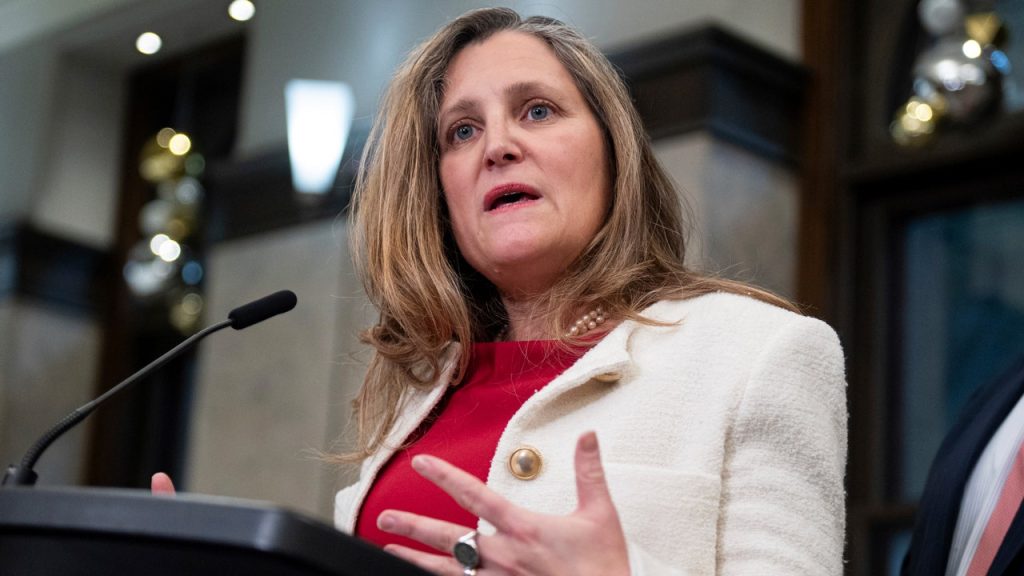The sudden resignation of Canadian Finance Minister Chrystia Freeland has sent shockwaves through the Canadian political landscape, posing a significant challenge to Prime Minister Justin Trudeau’s leadership and raising questions about the future of his government. Freeland, a prominent figure in Trudeau’s cabinet and widely seen as a potential successor, announced her departure on Monday, citing irreconcilable differences with the Prime Minister regarding the country’s economic direction, particularly in the face of potential trade tensions with the United States under the newly elected President Donald Trump. Her resignation leaves a void in Trudeau’s administration and fuels speculation about his ability to navigate the looming economic and political challenges.
The timing of Freeland’s resignation is particularly critical, as she was scheduled to deliver the fall economic statement, a crucial document outlining the government’s fiscal plans. Her departure amidst growing concerns about inflation, immigration, and the potential impact of Trump’s proposed tariffs on Canadian goods adds to the sense of instability within the government. Freeland’s resignation letter publicly criticized Trudeau’s economic policies, particularly a recent sales tax holiday and cash handouts to Canadians, arguing that such measures were fiscally irresponsible in the context of a potential trade war with the US. She emphasized the need for fiscal prudence and preparedness to counter the economic threats posed by Trump’s protectionist policies.
The political fallout from Freeland’s resignation has been swift and dramatic. Opposition parties have seized on the opportunity to attack Trudeau’s leadership, with Conservative leader Pierre Poilievre accusing the Prime Minister of losing control and the NDP leader Jagmeet Singh calling for Trudeau’s resignation. The Liberals’ reliance on the NDP’s support to maintain their minority government puts them in a precarious position, as the NDP’s potential withdrawal of support could trigger an early election. The Bloc Québécois leader, Yves-François Blanchet, declared Trudeau’s government effectively over, highlighting the gravity of the situation.
Trudeau’s decade-long tenure as Prime Minister has been marked by both successes and controversies. His initial popularity, fueled by his youthful charisma and the legacy of his father, Pierre Trudeau, has waned in recent years. The rising cost of living, immigration policies, and the government’s handling of the COVID-19 pandemic have contributed to declining public approval. Freeland’s resignation further weakens Trudeau’s position and raises doubts about his ability to lead the Liberal Party to a fourth consecutive term, a feat not achieved by any Canadian Prime Minister in over a century.
The resignation also comes amidst speculation about Trudeau’s attempts to recruit Mark Carney, the former Governor of the Bank of England and Bank of Canada, to join his government. Carney, who has long been touted as a potential Liberal leader, has significant economic credentials and could potentially bolster Trudeau’s flagging support. However, the timing of Freeland’s departure and the public criticism of Trudeau’s leadership could complicate efforts to attract high-profile figures to the government.
The political turmoil surrounding Freeland’s resignation highlights the deep divisions within the Canadian government and the significant challenges facing the country. The looming threat of trade disputes with the US, coupled with domestic economic concerns and declining public confidence in Trudeau’s leadership, creates a volatile political climate. The coming months will be crucial for Trudeau as he attempts to stabilize his government, address the economic challenges, and navigate the complex relationship with the United States under the Trump administration. The possibility of an early election looms large, adding further uncertainty to the Canadian political landscape.

